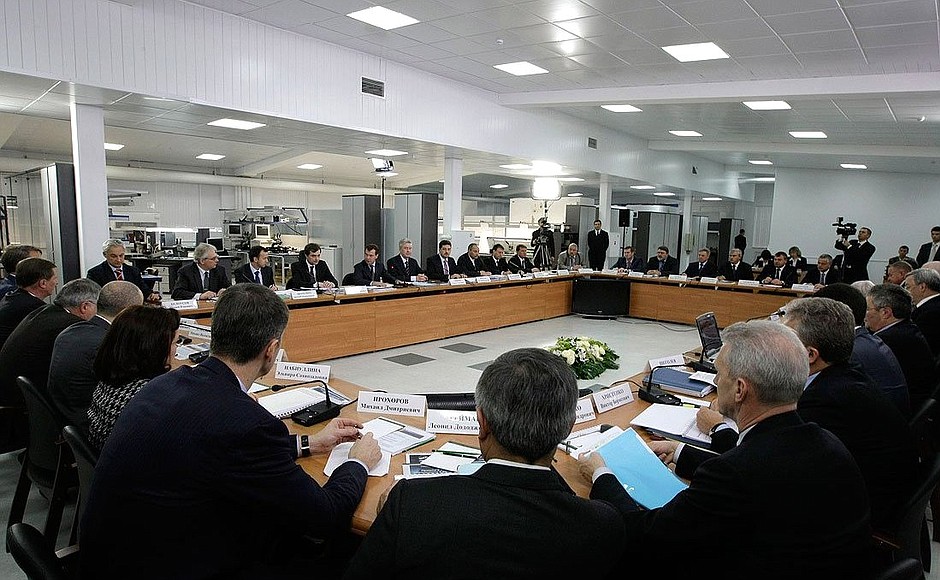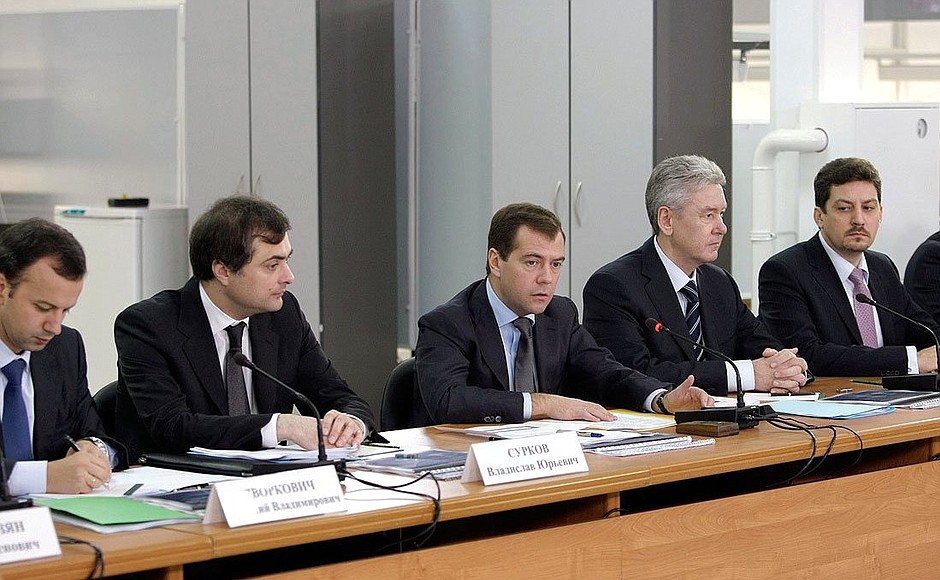Telecommunications and space exploration projects were the main subject of discussion.
In his opening remarks at the meeting, the President outlined the main tasks that need to be resolved in order to implement a number of promising projects in these sectors.
The first priority is rapid development of technology that meets world standards for speed and quality of data transmission and putting in place the conditions for their most extensive use. This is essential for carrying out already approved projects for developing grid systems and super computers, and also for modernising the information services sector.
The second task is to modernise outdated telephone stations. Mr Medvedev said that this would make it possible to offer modern, high-quality interactive services alongside traditional services.
The third task is to develop digital television and radio broadcasting throughout the entire country. The planned completion of this strategically important project by 2015 would give every person in Russia the chance to view at least 24 television channels with improved picture and sound quality.
The fourth task is to increase frequency ranges. This is a promising direction for work and efforts need to begin straight away on building new-generation Russian-made satellites, the President said.
One of the top priorities in outer space is to set the blueprint for the GLONASS system’s development, above all as concerns the range of services important for ordinary consumers.
Earlier, Mr Medvedev set five main priorities for the Commission’s work: raising energy efficiency and resource saving (including development of new types of energy); medical technology; modern information technology and software; nuclear technology; and the telecommunications and space sectors (including the GLONASS system and ground-based infrastructure development programmes).

